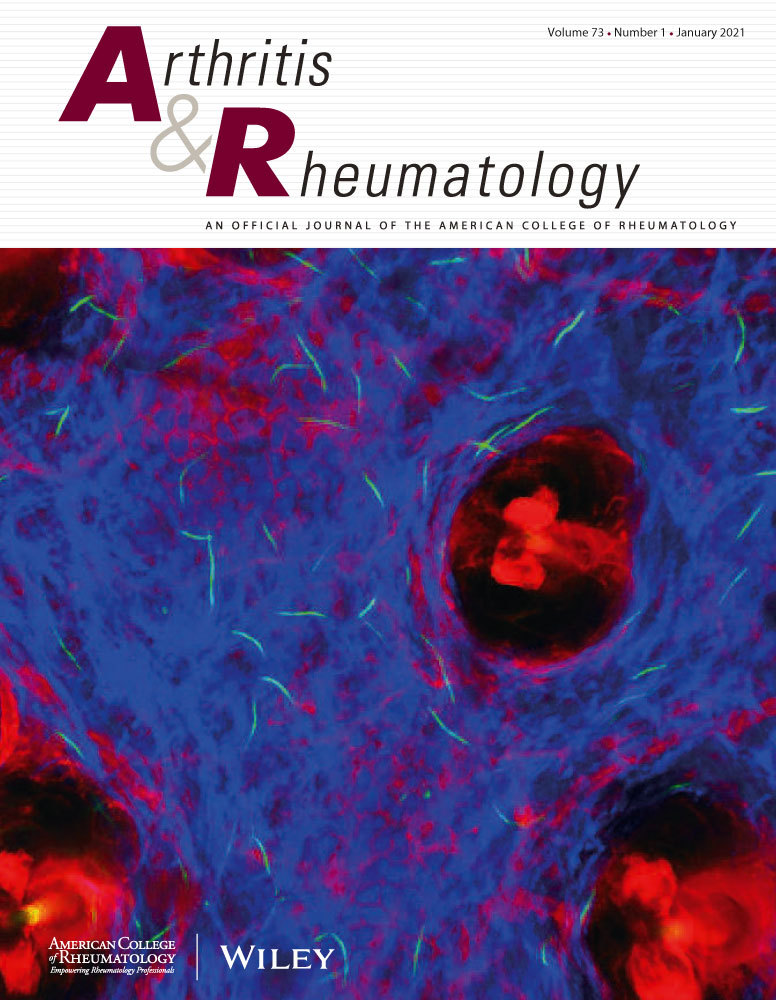Prognostic value of lupus anticoagulant and anti-β2 glycoprotein I antibody in adverse pregnancy outcomes.
IF 10.9
1区 医学
Q1 RHEUMATOLOGY
引用次数: 0
Abstract
OBJECTIVE International criteria for antiphospholipid syndrome (APS) include lupus anticoagulant (LA), anticardiolipin (aCL) immunoglobulin (Ig) G and IgM, and anti-β2-glycoprotein I (β2GPI) IgG and IgM. However, evidence supporting their prognostic value or treatment efficacy in improving live birth rates is limited. The Lancet series on miscarriage recommends testing only for LA and aCL, excluding β2GPI. We aimed to examine whether commercially available antiphospholipid antibody (aPL)-related tests have a prognostic value for obstetric APS. METHODS This prospective cohort study enrolled 1,237 pregnant women between July 2021 and March 2024. Women using heparin, including those with an obstetric APS diagnosis before pregnancy, were excluded. Pregnancy outcomes were followed until December 2024. The aPL-related tests comprised LA (diluted activated partial prothrombin time and diluted Russell's viper venom time (LA-RVVT)), aCL IgG, IgM, anti-β2GPI IgG, IgM, anti β2GPI domain I IgG, phosphatidylserine-dependent anti-prothrombin (aPS/PT) IgG, IgM, protein S, and coagulation factor XII activity. RESULTS The prevalence rates of early-onset preeclampsia, intrauterine fetal death (IUFD), and small gestational age were 1.4% (17), 0.7% (9), and 0.9% (11), respectively. Logistic regression analysis revealed that LA-RVVT and anti-β2GPI IgG were each predictor of early-onset preeclampsia and IUFD. The area under the curve for these conditions increased to about 0.8 when combined with a history of preeclampsia or IUFD, respectively. CONCLUSION LA-RVVT, anti-β2GPI IgG, complications including hypertension and a history of IUFD were valuable in identifying obstetric APS. The variation in test results across facilities limits the ability to establish consistent prognostic or treatment value for each aPL.狼疮抗凝血和抗β2糖蛋白I抗体在不良妊娠结局中的预后价值。
目的:抗磷脂综合征(APS)的国际标准包括狼疮抗凝剂(LA)、抗心磷脂(aCL)免疫球蛋白(Ig) G和IgM、抗β2-糖蛋白I (β2GPI) IgG和IgM。然而,支持它们在提高活产率方面的预后价值或治疗效果的证据有限。《柳叶刀》流产系列建议仅检测LA和aCL,不包括β2GPI。我们的目的是研究市售抗磷脂抗体(aPL)相关检测是否对产科APS有预后价值。方法本前瞻性队列研究在2021年7月至2024年3月期间招募了1,237名孕妇。使用肝素的妇女,包括怀孕前有产科APS诊断的妇女,被排除在外。怀孕结果被跟踪到2024年12月。apl相关检测包括LA(稀释活化部分凝血酶原时间和稀释罗素蛇毒时间(LA- rvvt))、aCL IgG、IgM、抗β2GPI IgG、IgM、抗β2GPI结构域I IgG、磷脂酰丝氨酸依赖性抗凝血酶原(aPS/PT) IgG、IgM、蛋白S和凝血因子XII活性。结果早发型子痫前期患病率为1.4%(17例),宫内死胎(IUFD)患病率为0.7%(9例),小胎龄患病率为0.9%(11例)。Logistic回归分析显示,LA-RVVT和抗β 2gpi IgG均是早发性子痫前期和IUFD的预测因子。当合并先兆子痫或IUFD病史时,这些情况下的曲线下面积分别增加到0.8左右。结论la - rvvt、抗β 2gpi IgG、高血压等并发症和IUFD史是诊断产科APS的重要指标。不同设施检测结果的差异限制了为每种aPL建立一致的预后或治疗价值的能力。
本文章由计算机程序翻译,如有差异,请以英文原文为准。
求助全文
约1分钟内获得全文
求助全文
来源期刊

Arthritis & Rheumatology
RHEUMATOLOGY-
CiteScore
20.90
自引率
3.00%
发文量
371
期刊介绍:
Arthritis & Rheumatology is the official journal of the American College of Rheumatology and focuses on the natural history, pathophysiology, treatment, and outcome of rheumatic diseases. It is a peer-reviewed publication that aims to provide the highest quality basic and clinical research in this field. The journal covers a wide range of investigative areas and also includes review articles, editorials, and educational material for researchers and clinicians. Being recognized as a leading research journal in rheumatology, Arthritis & Rheumatology serves the global community of rheumatology investigators and clinicians.
 求助内容:
求助内容: 应助结果提醒方式:
应助结果提醒方式:


